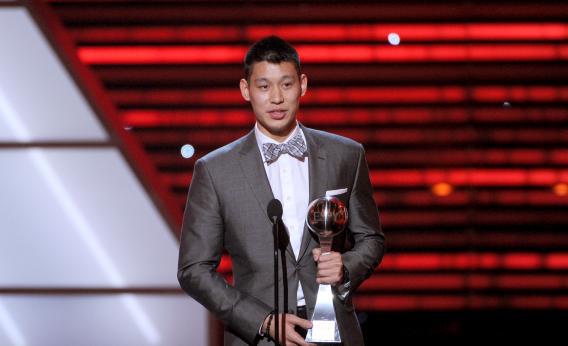Darius Tahir and Nate Silver both make the case that it would be good business sense for the New York Knicks to match Jeremy Lin’s contract offer from the Houston Rockets that was cleverly structured with a balloon payment that would cost New York $45 million over three years to pay (due to luxury tax issues), even as Houston would only be paying $25.1 million. Both discussions get heavily invested in Lin’s potentially unique marketability, but I think you don’t even need to go there. Paying Lin the money makes sense because it makes sense for the New York Knicks to pay lots of money to field a good basketball team.
I think the right baseline to start with here is that in 2012, NBA teams paid out an average of $1.94 million per win. Spending $45 million over 3 years on Lin looks like a good decision if we expect him to generate about seven to eight wins per year (7.7 exactly, but a bit less thanks to inflation). Based on Lin’s performance last year, I’d say that’s an optimistic assessment of his skills. But all you really need to seal the case for Lin is the observation that not all NBA markets are created equal. The New York City area is both much larger than the average NBA market and substantially more competitive, with the Knicks angling against three NHL teams, two NFL squads, and one rival NBA franchise for winter sports fans. Under the circumstances, I think it makes tons of sense for the Knicks to spend aggressively. An incremental win is worth much more in New York City than it is in Minnesota or New Orleans. A team like the Milwaukee Bucks actually needs to worry about questions like “what if we assemble a really good basketball team and then it’s so expensive that we lose money anyway.”
The Knicks don’t. In fact, alongside its primary objective of minimizing player compensation, one of the main goals of the NBA collective bargaining agreement is to make it impossible for teams like the Knicks to take full advantage of their disproportionate ability to transform wins into revenue.
The thing the Knicks need to worry about is spending large sums of money on players who don’t actually help win games (cough—Amare Stoudemire—cough), not paying too much for quality players.
A further consideration is that I don’t think the third-year poison pill “kicker” is really as deadly as the sports press is making it out to be. The way this contract is structured, for two years Knicks would be getting Lin at a low price. Then in the third year, they’d arguably be overpaying. But the way NBA contracts work, a bad contract in its final year isn’t such a terrible thing to have on your books because teams looking to dump long-term salary sometimes want to acquire expiring contracts. Last but by no means least, the existing big-dollar contracts for Stoudemire, Carmelo Anthony, and Tyson Chandler would all also be expiring that same summer. If the Knicks don’t resign Lin, they still have no flexibility until the end of the 2015 season. If they do resign him, they still have all their post-2015 flexibility. The considerations about the China market and so forth are interesting, but I think there’s a clear case for matching Houston’s offer that has nothing to do with that.
